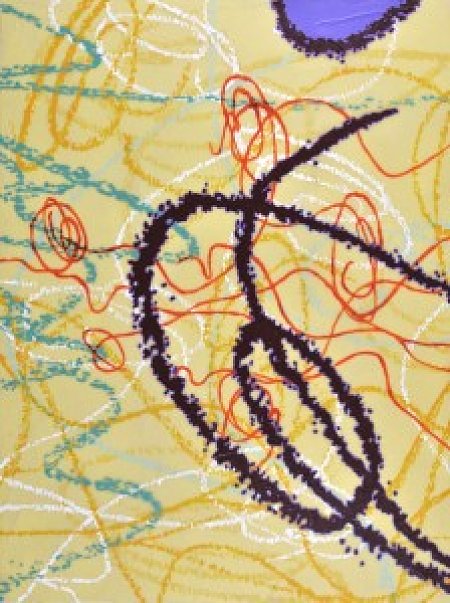
Numbers
I.
Olga’s body was found today. Brick homes stand shoulder to shoulder, a square playground is still in place, men walk its perimeter in checkered vests spewing loud statements about politics, and women quietly recite recipes and the rising price of milk: nothing has changed, except that the body was removed from the children’s playground, less than one hour after it fell.
It’s strange how quickly it was stumbled upon, how efficient my neighbors could be.
When she was alive, they stopped greeting her; they used to pass her on the stairwell or in the street staring straight ahead, pretending she was a speckle of light or a shadow; they turned her into a shadow before she actually became one, jumping from the seventh floor balcony where, in better times, she had sat with a promisingly voluptuous volume, this or that full-bodied book.
She told me once, “When I was a child, I didn’t know bookmarks existed and I couldn’t read either, so I would spend the whole day memorizing the page number where we stopped… In the evening I would recite it to Mamma so that she could read me an entire fairy tale without missing a beat… A page number, I would spend the whole day with only this on my mind.”
Olga lived two floors up from me, a lean, dry woman with an unsure posture and a slight bend forward, as if she were a leaning Tower of Pisa rather than a woman with a narrow face and pointed nose, as pointed as the tips of her beige shoes, always polished. Her face looked like a black-and-white etching, so clear and straightforward her features were. As years passed, she seemed to appear leaner and lean further, or was this the only detail about her that stuck in my memory?
The neighbors had been quick to change their mood toward her, relying not on their feelings (who knows whether they even had any feelings for her; she was lean as a leaflet and passed by as lightly as a leaf carried by the wind) but on something they had heard on state radio or glanced at in a newspaper, and they were quick, perhaps too quick, to pick her up when she fell, the only difference that she no longer cared about their efficiency–she was dreadfully dead.
Why this rush? Were they ashamed?
Shame in Italy is associated with silence: nobody mentions Olga these days.
I think that had she fallen on the street, because her old legs wouldn’t support her, then it would have been a nice thing to do, to come to the old lady and to help her stand up. But now, how can anybody lift her so that she stands up? Or, can she stand up on these pages, depicted by me with such vividness and virtuosity that her blood flows back to her limbs and her veins pulse? It’s a rhetorical question. It’s the writer in me scorching and making comical and clever faces, when there can be nothing funny or clever.
But back to the neighbors, whose collective face is as formless and pasty as dough; they crowd these pages ominously, but they have no distinctive features. They are as noisy as the background of history.
Just months ago they had looked up to her, a well-dressed, color-coordinated niece of famous publishers, who was married to a well-known realist painter, Ferrara.
Ferrara painted striped bathers, strippers and opium smokers in a harem, and he took his wife to an estate on lustrous Lago Maggiore, where they spent shiny summers. He would grab a wooden, foldable easel and stroll to a green hill, and she would take a wooden folding chair and read next to him while he painted. He was a person who found these simple folks unique and worth artistic attention.
In the past, neighbors would say, “Come sta, Signora Olga?” to her, and they would encourage youngsters to approach La Signora and ask how she felt today and what she was up to.
“What do you advise reading, Signora Olga? My Giovanni is ten and behind his classmates. We want him to read, but not to become as well-learned as you are; that is too much; we want him to be a man of trade; reading is just something he can do when he is tired after helping his father in the workshop.” Or: “How were you able to make your plant stand upright on your balcony? It’s gangly and tall but it does not break.” Or: “Signora Olga, you are always reading… why don’t you go on a picnic with us? Or just by yourself? Your eyes are bloodshot.”
They were awkward in their questions, but they didn’t need answers; they thought it was required of them to make small talk, to bridge the silence and social gaps between them, between her refined restraint and their loose, folksy manners. My neighbors are simple people, and in Northern Italy simple people still respect knowledge and admire complexity. Yes, they still do.
